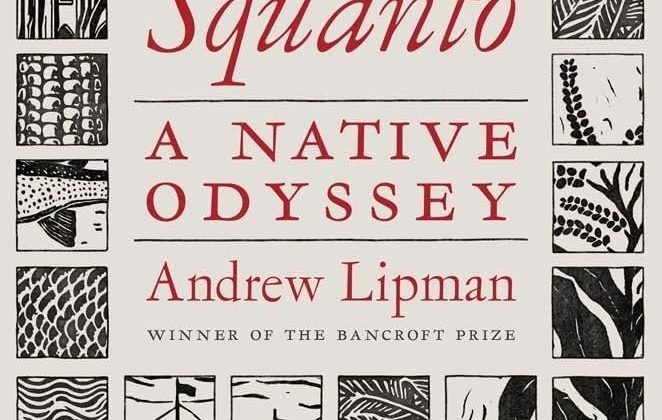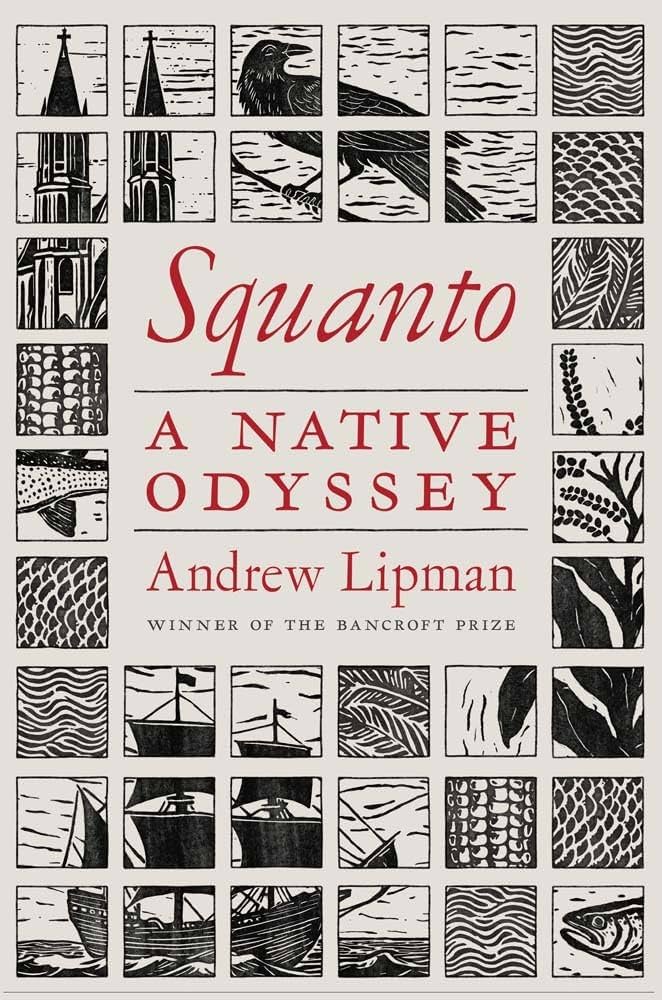

Andrew Lipman is Associate Professor of History at Barnard College, Columbia University. This interview is based on his new book, Squanto: A Native Odyssey (Yale University Press, 2024).
JF: What led you to write Squanto?
AL: Squanto began as an offshoot of my first book, The Saltwater Frontier. This man, also known as Tisquantum, was a pivotal figure in an early chapter. When researching him and confronting many unanswered questions about him, I saw an opportunity to dig deeper. I wanted to push myself to do a better job of engaging with Indigenous knowledge in my work and improve my craft as a writer. Tisquantum’s extraordinary life provided a compelling storyline, while the task of trying to understand his worldview challenged me to expand my toolkit.
JF: In 2 sentences, what is the argument of Squanto?
AL: Squanto, the man famed for helping the Mayflower colonists, has been misunderstood as either pro-colonial “friend of the Pilgrims” or as a self-serving figure who became an outsider among his own people. This new reconstruction of his life argues that Tisquantum’s most famous acts —teaching the English how to plant Native crops and acting as their guide—were a failed attempt to rebuild his own ravaged community.
JF: Why do we need to read Squanto?
AL: While he has been the subject of dozens of children’s books, several cartoons, an untold number of school plays, and a live action Disney feature film, there has never been a serious biography of his life. It’s widely known that the popular story behind the “First Thanksgiving“ is misleading. Other historians have done fine work picking apart the problems in the myth, but none had attempted to piece together Squanto’s epic backstory in its entirety.
I had two goals. The first was to get the closest I could to the truth of this man’s life and render him as a complicated person behind a distorted myth. The second was to write a book that was an engaging story on the surface, but drew inspiration from a wide range of interdisciplinary research.
JF: Tell us about the kinds of sources that you used to write this book.
AL: Squanto is based on mostly printed sources and a few key archival finds. I benefited enormously when a Spanish historian reached out—just as I was completing the final manuscript—to share her discovery of new documents from the Málaga Provincial Archives that shed light on Tisquantum’s time there. When researching in England, I also came across new material on John Slany, the man who hosted Squanto in London. Throughout my interpretations are supplemented by the work of academic and tribal historians, literary scholars, archaeologists, linguists, climate scientists, and museum professionals. Speaking with both Native and non-Native public historians was the most intellectually generative part of writing the book. Working through the scholarship on the Wôpanâak language was the most difficult (though also most rewarding) part of the research process.
JF: What is your next project?
AL: As the second book is now done, I’m finishing up a couple review essays and thinkpieces. As for the next book, I’m interested in environmental crises in 18th century British America. Throughout the eastern seaboard, there were countless examples of overhunting, overfishing, deforestation, soil loss, soil exhaustion, water pollution, and species invasions that became political problems that ordinary people and officials tried to solve. Tracing both the causes and attempted remedies to these crises can, I hope, give us a new picture of how early Americans transformed their environments and their governments after a century of colonization. Presently, I’m somewhat cheekily calling this project “The Ecological Origins of the American Revolution.” Whether or not I keep that title will depend on what I actually find in my research, of course.
JF: Thanks, Andrew!